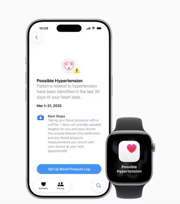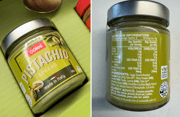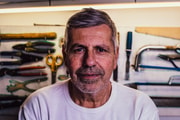Lawyer exposes beauty products ‘too dangerous to buy’ due to legal action and health recalls
- Replies 3
As people age, our skin becomes more sensitive to the world, especially to harsh ingredients in beauty products.
That's why today we're diving into a fascinating story about a lawyer who has shone a spotlight on beauty products she won't ever buy again due to health risks and legal controversies surrounding them.
Harvard graduate and mother-of-two Angela has made it her mission to track lawsuits and recalls linked to beauty products to help others make informed choices when shopping for cosmetics and self-care items.
Here are the top products Angela strongly advises against purchasing.
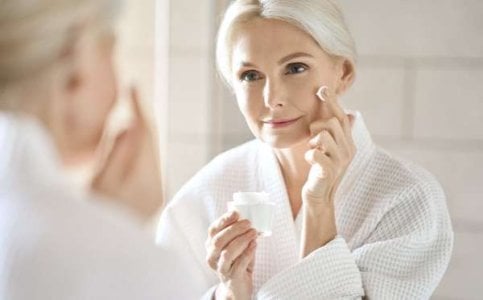
1. Waterproof mascara
To make mascara waterproof, companies often add PFAS — toxic chemicals linked to various health issues, including impaired immune function, diabetes, obesity, endocrine dysfunction, and even cancer. In a study by Notre Dame University, researchers found 82 per cent of tested waterproof mascaras contained a high level of these harmful chemicals.
Several popular makeup brands, such as L'Oreal, have faced legal action from customers who claimed that the company failed to disclose the presence of PFAS in its waterproof mascara products.
Although L'Oreal is said to be phasing out these chemicals from its products, it's always better to double-check the ingredients before purchasing.
2. Dry shampoo
Angela shared her shock upon discovering certain dry shampoo brands containing benzene, a known carcinogen linked to leukaemia and blood disorders. Laboratory Valisure in Connecticut tested 148 samples of cosmetic products, with alarmingly 70% returning positive results for benzene.
Popular brands Batiste and Not Your Mother's and premium alternatives Pureology and Kerastase were on the list. Angela regrets having used these products and urges others to avoid them too.
Benzene contamination may be attributed to inactive petroleum-derived ingredients, thickening agents, or isobutane (a spray propellant). Manufacturers, including Church & Dwight (maker of Batiste), have refuted these claims. However, the high number of lawsuits and recalls has left Angela cautious.
3. Spray sunscreen
Angela used to apply spray sunscreen liberally on her children, but she's stopped since finding out that major brands like Neutrogena, Aveeno, Banana Boat, Coppertone, and Elta MD have been found to contain benzene in their cans.
Voluntary recalls were issued in 2022, but that wasn't enough to change Angela's stance on the products.
Consumer Reports suggested that Aveeno and Neutrogena sunscreens had benzene levels ranging from 11.2 to 23.6 ppm, up to 12 times the US FDA-recommended level. Sunscreen lotions, however, were not found to contain benzene, so Angela now advocates for their use instead of sprays.
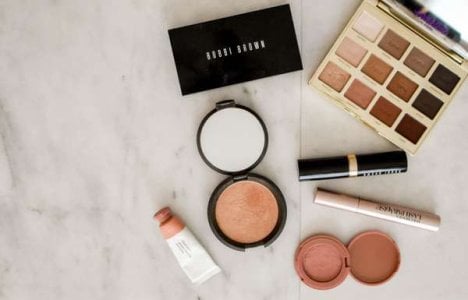
4. Makeup testers in stores
Although no successful lawsuits have been made against in-store makeup testers where health concerns are involved, Angela points out that numerous studies have highlighted the presence of harmful bacteria in testers, including E. coli, staphylococcus, and streptococcus, which can cause infections and even be fatal in extreme cases.
One study found that 100% of in-store makeup items tested contained germs. Angela advises avoiding testers and purchasing sealed products instead.
5. Eyelash growth serums
Angela is also cautious about using over-the-counter eyelash growth serums. In contrast to Latisse—the only FDA-approved growth serum that requires a doctor's prescription—many other serums on the market contain harmful, hormone-disrupting ingredients, such as Bitmaprost.
Consumers using these products have experienced severe side effects, leading to legal action against the companies selling them.
6. UV gel nails
UV gel nail dryers have been likened to 'tanning beds for your hands' by Angela, who says they're linked to skin cancer.
Dermatologists, including Dr Chris Adigun from the New York University School of Medicine, have warned that gel manicures can cause lasting damage to the nails and even increase the risk of skin cancer.
Dr Adigun even recommends applying sunscreen to hands before having a gel manicure due to the UV lamps' effect on skin cells. The lack of regulation for these machines adds further concern, as consumers may be unknowingly exposed to harmful levels of UV rays.

Members, we want to emphasise the importance of being cautious when purchasing beauty and self-care products. Your well-being should always be a top priority, so we urge you to stay informed and take necessary precautions. Feeling and looking your best should never come at the expense of your health.
If you know of any other beauty items that could pose a health risk to users, we would greatly appreciate it if you could share that information with us in the comments section below.
That's why today we're diving into a fascinating story about a lawyer who has shone a spotlight on beauty products she won't ever buy again due to health risks and legal controversies surrounding them.
Harvard graduate and mother-of-two Angela has made it her mission to track lawsuits and recalls linked to beauty products to help others make informed choices when shopping for cosmetics and self-care items.
Here are the top products Angela strongly advises against purchasing.

Make sure you're aware of the ingredients in your products and any possible recalls on them. Credit: Shutterstock.
1. Waterproof mascara
To make mascara waterproof, companies often add PFAS — toxic chemicals linked to various health issues, including impaired immune function, diabetes, obesity, endocrine dysfunction, and even cancer. In a study by Notre Dame University, researchers found 82 per cent of tested waterproof mascaras contained a high level of these harmful chemicals.
Several popular makeup brands, such as L'Oreal, have faced legal action from customers who claimed that the company failed to disclose the presence of PFAS in its waterproof mascara products.
Although L'Oreal is said to be phasing out these chemicals from its products, it's always better to double-check the ingredients before purchasing.
2. Dry shampoo
Angela shared her shock upon discovering certain dry shampoo brands containing benzene, a known carcinogen linked to leukaemia and blood disorders. Laboratory Valisure in Connecticut tested 148 samples of cosmetic products, with alarmingly 70% returning positive results for benzene.
Popular brands Batiste and Not Your Mother's and premium alternatives Pureology and Kerastase were on the list. Angela regrets having used these products and urges others to avoid them too.
Benzene contamination may be attributed to inactive petroleum-derived ingredients, thickening agents, or isobutane (a spray propellant). Manufacturers, including Church & Dwight (maker of Batiste), have refuted these claims. However, the high number of lawsuits and recalls has left Angela cautious.
3. Spray sunscreen
Angela used to apply spray sunscreen liberally on her children, but she's stopped since finding out that major brands like Neutrogena, Aveeno, Banana Boat, Coppertone, and Elta MD have been found to contain benzene in their cans.
Voluntary recalls were issued in 2022, but that wasn't enough to change Angela's stance on the products.
Consumer Reports suggested that Aveeno and Neutrogena sunscreens had benzene levels ranging from 11.2 to 23.6 ppm, up to 12 times the US FDA-recommended level. Sunscreen lotions, however, were not found to contain benzene, so Angela now advocates for their use instead of sprays.

The bacteria and other germs found in makeup testers could affect your health. Credit: Unsplash/Element5 Digital.
4. Makeup testers in stores
Although no successful lawsuits have been made against in-store makeup testers where health concerns are involved, Angela points out that numerous studies have highlighted the presence of harmful bacteria in testers, including E. coli, staphylococcus, and streptococcus, which can cause infections and even be fatal in extreme cases.
One study found that 100% of in-store makeup items tested contained germs. Angela advises avoiding testers and purchasing sealed products instead.
5. Eyelash growth serums
Angela is also cautious about using over-the-counter eyelash growth serums. In contrast to Latisse—the only FDA-approved growth serum that requires a doctor's prescription—many other serums on the market contain harmful, hormone-disrupting ingredients, such as Bitmaprost.
Consumers using these products have experienced severe side effects, leading to legal action against the companies selling them.
6. UV gel nails
UV gel nail dryers have been likened to 'tanning beds for your hands' by Angela, who says they're linked to skin cancer.
Dermatologists, including Dr Chris Adigun from the New York University School of Medicine, have warned that gel manicures can cause lasting damage to the nails and even increase the risk of skin cancer.
Dr Adigun even recommends applying sunscreen to hands before having a gel manicure due to the UV lamps' effect on skin cells. The lack of regulation for these machines adds further concern, as consumers may be unknowingly exposed to harmful levels of UV rays.
Key Takeaways
- A lawyer has revealed the top beauty items she would never buy again due to the growing pile of lawsuits and recalls against them over health concerns.
- It’s becoming increasingly difficult to find a mascara that meets safety standards. To make a mascara waterproof, companies often need to add PFAS, which is linked to diabetes, obesity, and cancer.
- Some dry shampoos and spray sunscreens have been found to contain benzene, a known carcinogen that is strongly linked to leukaemia and other blood disorders, leading to recalls of several brands.
- In-store makeup testers have been found to carry a variety of germs, including E. coli, staphylococcus, and streptococcus bacteria.
- UV gel nails, which use UV light to set the polish, have been linked to an increased risk of skin cancer by dermatologists, and the machines used for these gel manicures are not regulated.
Members, we want to emphasise the importance of being cautious when purchasing beauty and self-care products. Your well-being should always be a top priority, so we urge you to stay informed and take necessary precautions. Feeling and looking your best should never come at the expense of your health.
If you know of any other beauty items that could pose a health risk to users, we would greatly appreciate it if you could share that information with us in the comments section below.



